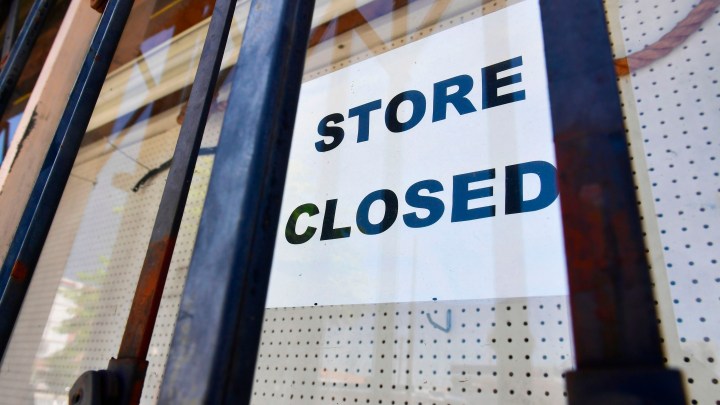
How some small businesses are bracing themselves for a downturn
How some small businesses are bracing themselves for a downturn

Amid the almost daily back-and-forth about whether this economy is in a recession, a number of businesses aren’t waiting for a clear answer. Instead, they’re already taking steps to prepare for one.
General Motors, for instance, recently announced that it’s cutting some spending and tapping the brakes on new hires. Walmart has said its customers are cutting their own spending, so it’s marking down more of its products. And some small businesses are preparing for a downturn too.
One reason they’re preparing is because the pandemic has changed the way a lot of small business owners plan for the months ahead.
“Now, we’re wired in a way that we think about the future, that something major could happen,” said Ken Giddon, co-owner of Rothmans, a men’s clothing store in New York. “There could be a major shift.”
Giddon said clothing sales have been great this year, with people going back to the office and going out to events. But the pandemic taught him to order clothing closer to the season, instead of three to six months in advance like he used to.
“There’s a nimbleness and a flexibility that you didn’t consider before in the buying process,” Giddon said.
Instead of working exclusively with vendors who make products to order, Giddon said he’s working more with suppliers that have clothing items already made, in warehouses and ready to ship. Plus, Giddon said he and his vendors have a new understanding: If the economy goes south, Giddon might have to hold off on an existing order.
“In the past, that would have led to a big dispute,” Giddon said. “But it’s understanding that we’re all partners in this thing. And sometimes things happen, and both sides need to adjust.”
Preparing for a downturn can be a challenge while consumers are still buying your product.
“Believe me, we’re all wearing like five different hats and we’re exhausted,” said Jovani Prince, founder of The Cracker King, a company that makes gluten-free crackers.
Late last year, Prince outsourced his production to a commercial bakery. That’s helped him expand production and sales. But it’s also allowed him to reduce his employee headcount to just three people.
“We are lean and mean,” Prince said. “And we plan to stay that way, and it’s hard.”
Prince said he’d rather not hire any more people, in part because he’d rather not have to lay anybody off if there’s a recession. Prince also wants to ensure that his business can survive with a lean staff.
“It hurts your heart when you have to let people go, when you know, they have families and whatnot,” Prince said. “I’d rather be in a position where I have a small team and I know exactly what I need to do with my business in order to stabilize and stay successful and grow.”
Hiring more employees is also getting more expensive as wages rise. But that’s not the only cost that’s rising: supplies are more expensive, as are shipping and rent.
“When you have a fixed brick and mortar, day in and day out, you have to pay the bills,” said Sophie Blake, owner of a jewelry store in Virginia.
Lately, Blake has been worrying about what will happen if her customer traffic slows down.
“If your landlord charges you X dollars for your rent, that’s never going to change. You’re still going to owe them that money, whether the economy’s good or bad,” Blake said.
So, Blake has decided to close her store and move the entire operation online. She said she’ll still put on local pop-up sales and sell items through other retailers. But the goal of going online is to be in a better position to ride it out if her local economy turns south.
“Your hope is that by reaching a bigger audience, more people learn about you, you get to acquire customers outside of your natural geography,” Blake said.
And if there’s a recession, Blake said an online-only operation would also make it easier to reduce costs. For instance, she could cut back on advertising.
That said, Blake said she knows there’s no guarantee that the pivot will work out.
“It’s scary for me because I’m not comfortable in that space,” Blake said. “For seven years, our primary driver of sale was in-store, customers walking in and shopping with us.”
Blake said she’ll shut down her physical store later this month.
There’s a lot happening in the world. Through it all, Marketplace is here for you.
You rely on Marketplace to break down the world’s events and tell you how it affects you in a fact-based, approachable way. We rely on your financial support to keep making that possible.
Your donation today powers the independent journalism that you rely on. For just $5/month, you can help sustain Marketplace so we can keep reporting on the things that matter to you.











